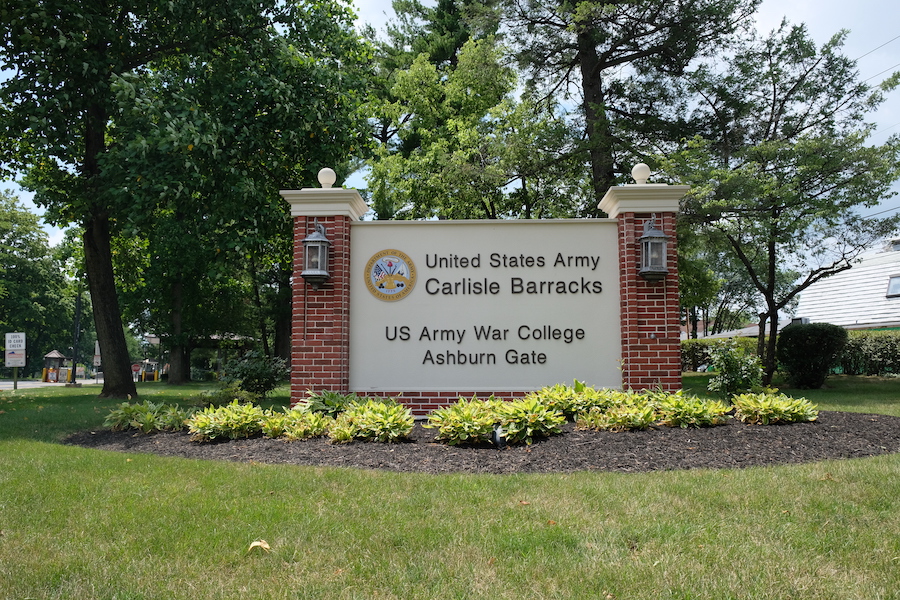
- Details
- By Kaili Berg
The Winnebago Tribe of Nebraska has filed an appeal with the United States Court of Appeals for the Fourth Circuit, seeking to compel the U.S. Army to repatriate the remains of two Winnebago boys, Samuel Gilbert and Edward Hensley, who died at Carlisle Indian Industrial School.
The tribe’s opening brief argues that the U.S. Army is obligated under the Native American Graves Protection and Repatriation Act (NAGPRA) to return the boy’s remains from Carlisle Cemetery to their ancestral homeland.
The Carlisle Indian Industrial School, established in 1879 in Pennsylvania, became a symbol of the federal government’s assimilationist policies, where over 10,000 Native children from more than 140 tribes were sent between 1879 and 1918.
Conditions at the school were harsh, with children subjected to forced removal from their families, physical punishment for speaking their languages, and neglect that led to widespread illness and death. At least 186 children died while attending the school, many buried on the grounds.
The U.S. Army, which now controls the site, has resisted complying with NAGPRA, claiming exemption from federal law. This resistance includes the nearly 200 sets of Native American remains buried at Carlisle Cemetery.
In 1927, the Army disinterred and relocated these remains without notifying or consulting the children’s families or tribal nations. The relocation was prompted by the construction of a parking lot on the Army base.
Of the 186 Native children who died at Carlisle, at least 80 sets of remains remain at Carlisle Cemetery, while others have been repatriated after advocacy efforts by tribal nations. Tragically, some remains are marked as “unknown,” a reflection of the Army’s historic mismanagement and lack of care for the identities and cultural significance of these children.
“I, as a mother and grandmother, would want someone to bring my child back home, but I also want it to be done in a good way and NAGPRA ensures that that is possible,” said Winnebago Tribal Historic Preservation Officer Sunshine Bear.
According to the National Native American Boarding School Healing Coalition (NABS), more than 500 Native children have been identified as buried at federal boarding schools across the country.
The appeal follows the U.S. District Court for the Eastern District of Virginia’s decision in August 2024 to dismiss the case. The Winnebago Tribe is represented by a team of attorneys from Big Fire Law & Policy Group LLP, the Native American Rights Fund (NARF), and Cultural Heritage Partners, PLLC.
“Tribal Nations fought hard for the rights established under NAGPRA. It is the only federal law mandating the repatriation of Native American remains, which is exactly what the Winnebago seek here,” Beth Margaret Wright, a NARF staff attorney said.
The Native American Graves Protection and Repatriation Act, enacted in 1990, requires federal agencies and museums to return Native American remains and cultural items to their affiliated tribes. A 2020 report found that, of the more than 210,000 Native American remains held by institutions across the U.S., only 9% had been returned to their tribal nations.
In 2021, the U.S. Department of the Interior launched a Federal Indian Boarding School Initiative to investigate these institutions' impact on Native communities, and in 2023, President Biden issued a formal apology for the federal government’s role in these tragedies. However, for many tribal nations, healing begins with bringing their children home.
“The U.S. Army must be held accountable under NAGPRA. Repatriation provides Tribal communities with healing from the Indian boarding school era. This is what Winnebago seeks in pursuing its NAGPRA rights to bring Samuel’s and Edward’s remains home from Carlisle,” said NARFJason Searle, NARF staff attorney.
The prolonged resistance by the U.S. Army delays the Winnebago Tribe’s efforts to honor Samuel and Edward and provide their families with long-awaited closure. Repatriating the remains of Native children is a necessary step in addressing the painful legacy of the Indian boarding school era.
The Winnebago Tribe hopes this case will hold the U.S. Army accountable under NAGPRA and set a precedent for the respectful return of Native remains to their rightful communities.
More Stories Like This
Native News Weekly (August 25, 2024): D.C. BriefsCelebrating Native American Women
Native Bidaské: The Illusion of Freedom and the Myth of America 250, Leonard Peltier Speaks Out
Monday Morning (March 2, 2026): Articles You May Have Missed This Past Weekend
Native News Weekly (March 1, 2026): D.C. Briefs
Help us defend tribal sovereignty.
At Native News Online, our mission is rooted in telling the stories that strengthen sovereignty and uplift Indigenous voices — not just at year’s end, but every single day.
Because of your generosity last year, we were able to keep our reporters on the ground in tribal communities, at national gatherings and in the halls of Congress — covering the issues that matter most to Indian Country: sovereignty, culture, education, health and economic opportunity.
That support sustained us through a tough year in 2025. Now, as we look to the year ahead, we need your help right now to ensure warrior journalism remains strong — reporting that defends tribal sovereignty, amplifies Native truth, and holds power accountable.
 The stakes couldn't be higher. Your support keeps Native voices heard, Native stories told and Native sovereignty defended.
The stakes couldn't be higher. Your support keeps Native voices heard, Native stories told and Native sovereignty defended.
Stand with Warrior Journalism today.
Levi Rickert (Potawatomi), Editor & Publisher


